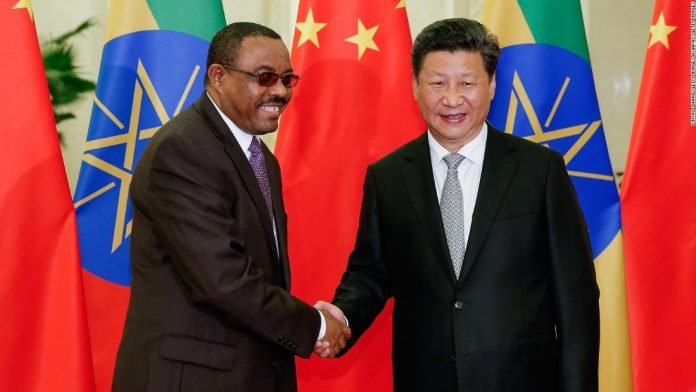Over the past decade, China has evolved into a burgeoning force in the economies of African countries. Everything from Chinese restaurants, clothing boutiques, and even beauty salons have popped up across the continent. At this point, it’s pretty much impossible to ignore their presence back home- the Chinese have made it impeccably clear that they are here to stay.
In 2011, Chinese investment on the continent grew to USD 3.17 billion- a drastic increase from the 200 million that was reported in 2000. There are now approximately one million Chinese migrant workers living on the continent.
Investment has transcended across various sectors ranging from infrastructure and transportation, to the energy and extraction industries. But of course, the rather sudden interest that China has taken in the development of African countries hasn’t gone without criticism and raised eyebrows.
Despite the fact that Chinese leaders have assured that their interest in Africa is perfectly altruistic, the reality is that Chinese investment in Africa is not black and white. While there are significant developments that have arisen because of Chinese investments, there are also potential downfalls and negative implications that may arise.
For one, China did not decide to invest in Africa because of a personal, altruistic desire to uplift and aid in Africa’s economic development. Despite the investments they’ve made in foreign aid, it’s not necessarily their top priority. China’s main goal is and always has been to promote economic development, and foreign investment is certainly conducive to this goal.
However, foreign investment can be mutually beneficial for both sides. For example, while investment enables roads, rail lines, and other parts of infrastructure to improve, the Chinese also get to obtain access to the continent’s natural resources. In addition, investment has led to sustainable growth, thus significantly reducing poverty levels in Sub-Saharan Africa. The poverty rate dropped from 57% between 1990 and 2002, to 45% in the last decade.
But while the influx of Chinese migration to the continent has resulted in the creation of jobs for Chinese laborers, it doesn’t necessarily provide the same amount of jobs for Africans. In fact, the textile industry in Nigeria fell from 600,000 workers two decades ago, to just 20,000 in 2015. The reason? China has begun to manufacture African clothing for much lower prices than what is sold in Nigeria.
To make matters worse, Chinese goods are so widely and cheaply manufactured that they don’t always meet safety standards. In 2016, a fire ravaged through an internet cafe in Nigeria, destroying all 30 computers. The culprit? Chinese-made power strips. When it comes to Africa, apparently, safety regulations don’t need to be enforced.
Thus, it isn’t surprising why critics have referred to Chinese investment in Africa as a form of neocolonialism. The era of European colonialism in Africa was marked by the exploitation of the continent’s natural resources and a complete disregard for the livelihoods and safety of African people. When you have careless incidents occurring that could have otherwise been prevented, such as the internet cafe fire, it makes it clear that China’s top priority is not the livelihood and safety of Africans. And when you have African industries and businesses failing because they are losing to Chinese competition, it makes it evident that the Chinese economy continues to be of utmost importance, even at the sake of Africa’s development.
The reality is that while Chinese investment has resulted in some advancements in the overall development of Africa’s economy, their affairs must be closely monitored so as to prevent further exploitation. History has the potential to repeat itself in this case, and we know far too much about the history of colonization to ignore these warning signs.


